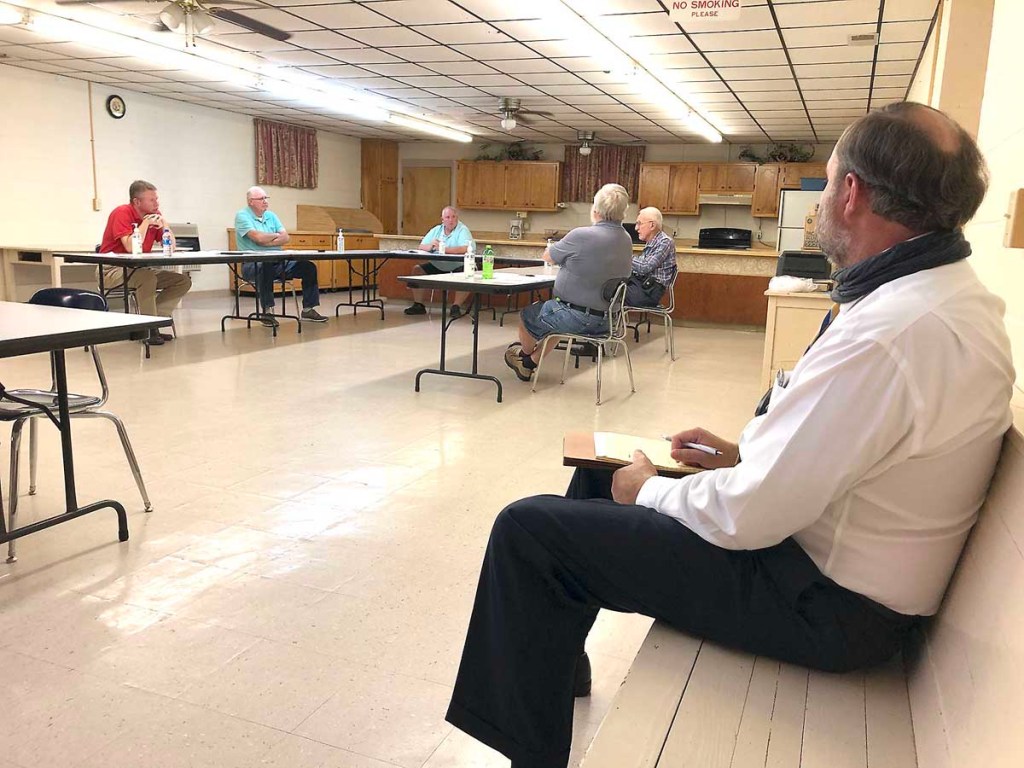Berlin weighs limited options for Rescue Act funds
Published 5:21 pm Tuesday, July 20, 2021

- The Berlin council discusses CARES funding at the Monday, Oct. 19 meeting.
BERLIN — Like other local governments, Berlin is receiving a share of local funding from the $1.9 trillion American Rescue Plan Act of 2021, the federal COVID-19 response measure that apportions $350 billion in direct funding to states, counties, cities, and towns throughout the U.S.
And, like a lot of other local governments, its leaders aren’t quite sure how they’re going to spend the money.
Trending
At the town’s regular council meeting Monday, Berlin mayor Patrick Bates invited council members to begin researching and brainstorming ideas for how the town can stay within state-mandated parameters as it seek to allocate its Rescue Act funds. The town already has received $54,620.90, the first of two scheduled direct payments. The second installment is set to arrive in 2022.
Though the funds come directly from the federal government, the State of Alabama is issuing guidance to all municipal governments that sets parameters for how the funds can be used. “The more I’ve looked at our options, the more our options become more limited,” Bates said. “At the moment, I am grasping at straws, and I’d really like to hear from the council at our next meeting on some ideas on how we can legally spend this money.”
The state has outlined a handful of spending categories, all ostensibly related to the COVID-19 pandemic and its secondary effects, for municipalities to follow. Those include replacing of lost revenue, direct aid to the community, certain infrastructure upgrades (roads aren’t included), and bonus payments to first responders who worked extra hours during the pandemic.
Bates said Berlin proves an exception to nearly all of the state’s spending guidelines. Rather than losing money last year, for instance, “we had record revenues,” he said, adding that there are no affiliated first responders whom the town could legally compensate. Making direct payments to community shareholders may also run afoul of language in the state constitution, he added. “I do have one idea,” Bates said, “but I also want to hear the council’s ideas, and kind of get everything in front of us before we decide how we’re going to proceed. We’ll discuss it at our next meeting.”
In other business at its regular meeting this week, the council:
Approved an estimated $8,000 expenditure for a traffic signal sensor upgrade for the eastbound turn lane of U.S. Highway 278 at the County Road 747 intersection. The upgrade will replace a damaged sensor embedded beneath the asphalt with an optics-based sensor that monitors lane traffic from above.
Trending
Voted to cancel the town’s internet service with Spectrum, which it had retained as a backup line after acquiring local Sprout internet service through the Cullman Electric Cooperative. Recent Sprout upgrades will offer the town a redundant service line, said Bates, obviating the need for Spectrum. The move will save the town approximately $90 per month.
Discussed, but took no action on, funding a fall training session for town clerk Keirstyn Montgomery through the Alabama Association of Municipal Clerks & Administrators. The council will take the matter up at a future meeting, pending additional scheduling information from the organization.
Approved the minutes of the council’s May 24 regular meeting and its June 21 specially-called meeting.





